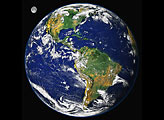CLIMATE CHANGE AND GLOBAL HEATING: What we can do together to repair our broken planet.

Friday, 22 April – Earth Day.
This WEBINAR aimed to provide an overview of current Climate challenges, recommendations for actions by individuals and institutions, and – most crucially – the important role of teachers and young people in raising awareness.
Anne-Marie Carlson, CTAUN Co-Chair, welcomed the 275 registrants from 22 countries and pointed out that global heating affects all aspects of human life. She introduced RAMU DAMODARAN , (retired) leader of United Nations Academic Impact Initiative, as Moderator of the webinar and EILEEN VENEZIA, CTAUN Vice-Chair as Chair of the webinar.
Following was the video appearance of Frankie the dinosaur (using computer generated technology – CGI) in the UN’s General Assembly Hall whose message was: “Going extinct is a bad thing…Start making changes (to address the climate crisis). It’s now or never.”
Referring to what he labels “global heating,” keynote speaker FRANZ BAUMANN, Former Assistant Secretary-General of the UN, called it “the greatest challenge humanity has ever faced,” and, alluding to the war in Ukraine, an even more important challenge than war. It is a challenge that can only be solved by cooperation among nations. Slides illustrated the effects that fossil fuel emissions have on the atmosphere. He pointed out that as far back as 1996 – the UN had already introduced a resolution calling for “protection of the global climate” with specific reference to greenhouse gases. He also referred to the most recent report of the International Panel on Climate Change (IPCC) – a special commission of experts established by the UN. In this report it is made clear that urgent action is needed. Professor Baumann mentioned responses to the problem of global heating as mitigation, adaptation and suffering, and explained what each term meant. He stressed the importance of activism by young people and mentioned Greta Thunberg’s insistence on raising awareness about the problem and taking action.
Moderator Ramu Damodaran dialogued with KATIE WORTH, author of Miseducation-How Climate Change is Taught in America. She believes it is no accident that one in four students do not believe in climate change, and showed that much of this is caused by the propaganda used by big fossil fuel companies, for example by influencing content included in textbooks. Children should have the facts; many educators are working on how to best teach them so that they along with their parents will become more aware.
DONNA GOODMAN, former UNICEF staff member and long-time educator on environment shared her belief that many children are unaware of the connection between nature and themselves, so they must learn to interact with nature. This can happen through effective teaching in the classroom, and also through books. Ms. Goodman spoke about her work ensuring that children have a voice.
KIANA JOY YABUT is a student at the University of Guam and a representative at the Guam Youth Congress. For Guam, a region dependent on tourism, typhoons and air pollution are important issues. Ms. Yabut said that delaying action on climate change – “an everything issue” – is like putting a pot on a back burner. Sooner or later, it will overflow; to ensure our future, we must prevent that spill. She shared examples of actions young people are taking.
In the Student-led Question and Answer segment, ( GIANNA BARCIA , PETER BROSNAN, SEAN O’HAGAN ) the following ideas were presented.
- Our life style, behavior and survival skills are all affected by our location in the world. The rich have ways to adapt, the poor do not.
- Ways to mitigate climate change also depend on where you live. Water, trees and lifestyle are important.
- Children and young persons must be aware of their local environment and have survival skills. Greta Thunberg is important because she moved the problem to the center of attention.
- Knowledge is power; therefore, it is important that every mode of communication be used to push the agenda and make the facts and the necessity for action to mitigate climate change known. Adults will react if they feel empowered.
- Climate change is having an effect on our health since we are encroaching on nature. There is an increase in zoonotic diseases.
To a question posed by a viewer, Katie Worth stressed the importance of local political action, especially by the young who will be the most affected. She also cited the influence that lobbyists for the oil industry in Texas had on the establishment of state emissions standards. She urged the use of wind and sun as energy sources.
Ms. Carlson thanked everyone for their many contributions and stressed the importance of greater attention to and involvement in the protection of our planet and its resources.
Watch the VIDEO
As far back as 1998 the UN General Assembly passed General Assembly resolution A/43/53 “Protection of global climate for present and future generations of mankind” which reads, in part:
“Welcoming with appreciation the initiative taken by the Government of Malta in proposing for consideration by the Assembly the item entitled “Conservation of climate as part of the common heritage of mankind”
Concerned that certain human activities could change global climate patterns, threatening present and future generations with potentially severe economic and social consequences.
Noting with concern that the emerging evidence indicates that continued growth in atmospheric concentrations of “greenhouse” gases could produce global warming with an eventual rise in sea levels the effects of which could be disastrous for mankind if timely steps are not taken at all levels….”
For the full resolution text in the original document go to https://undocs.org/A/res/43/53

The recent IPCC (International Panel on Climate Change) report provides details of where we are today:
https://report.ipcc.ch/ar6wg2/pdf/IPCC_AR6_WGII_SummaryForPolicymakers.pdf
